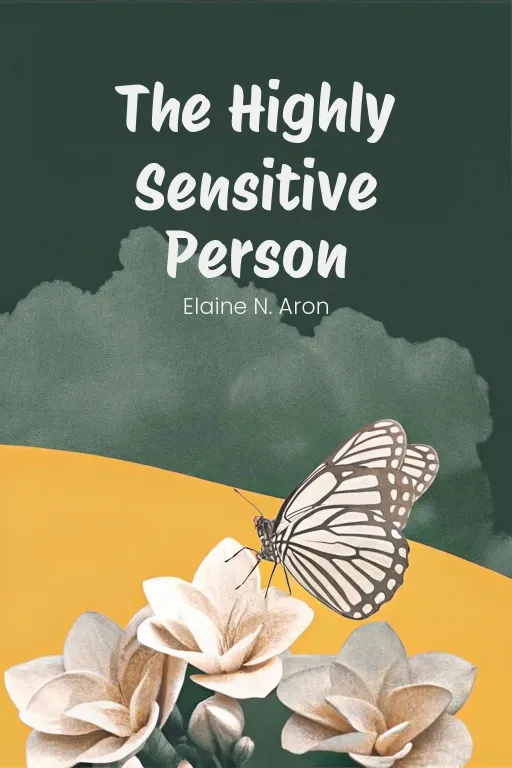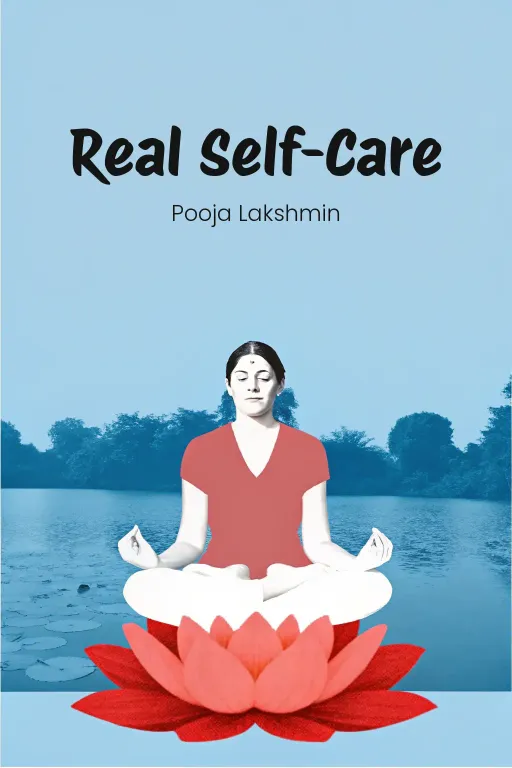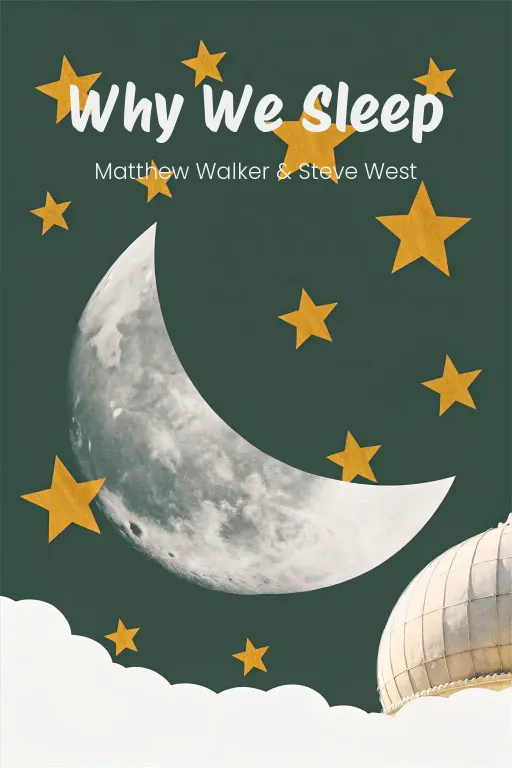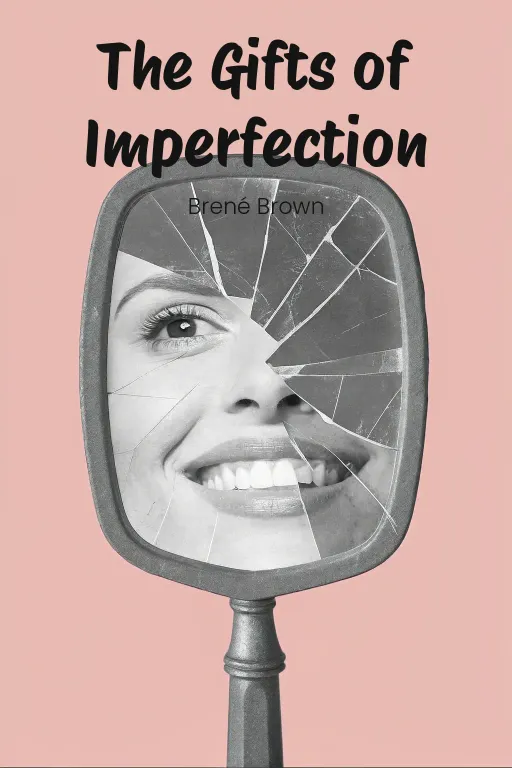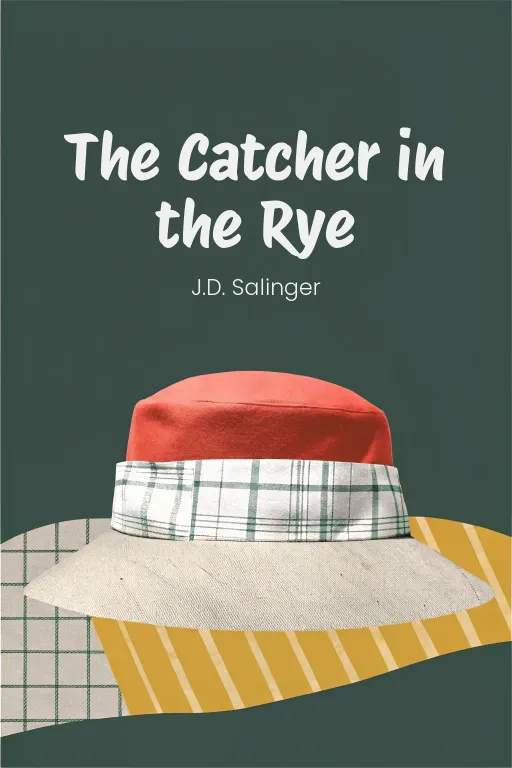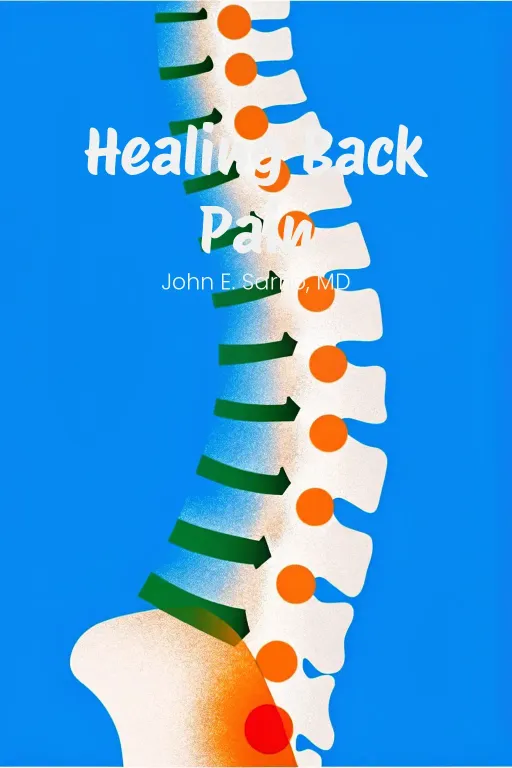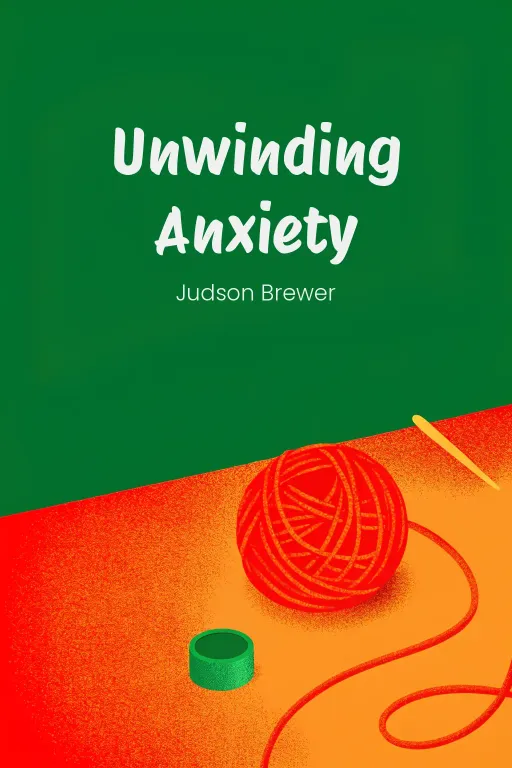
Unlock Your Sensitive Superpower
Podcast by The Mindful Minute with Autumn and Rachel
How to Thrive When the World Overwhelms You
Introduction
Part 1
Autumn: Hey everyone, welcome back to the show! Today we're tackling a topic that I think a lot of you will find “really” relatable, whether it's for yourself or someone you know. Let me ask you this: Ever feel totally wiped out after a noisy party? Or pick up on other people's feelings before they even say anything? Well, you might be one of the 15 to 20 percent of the population that Elaine Aron calls highly sensitive people, or HSPs. Rachel: “Sensitive,” huh? That word can feel like a compliment or... well, the opposite. So, when Aron says that high sensitivity is actually rooted in biology, psychology, and even evolution, I'm intrigued. I mean, could we be talking about something less like a weakness and more like a... superpower? Autumn: That's the idea! Her famous book, The Highly Sensitive Person: How to Thrive When the World Overwhelms You, dives into what it “really” means to experience the world as an HSP. And it's not just about tearing up during movies or hating bright lights, you know? Aron combines scientific research, personal stories, and “really” practical advice to show how HSPs can navigate their unique traits in relationships, at work, and even within themselves. Rachel: Alright, so here's what we're going to do today. We'll break this down into three key areas. First, the science—what makes someone an HSP and why society often misunderstands it. Second, the practical stuff—tools to not just survive but thrive in an overstimulating world. And finally, the deeper stuff—how sensitivity can connect us to creativity, spirituality, and a sense of purpose. Sound good? Autumn: Exactly! Think of it as uncovering the layers of high sensitivity: from biology to boundaries, and all the way to the beauty of it. Let’s explore how being sensitive isn't a problem—it’s actually a strength waiting to be embraced.
Understanding High Sensitivity
Part 2
Autumn: Okay, Rachel, so let’s get down to it. What exactly “is” high sensitivity? Don’t just think of it as someone who’s “too emotional” or “needs to toughen up," because honestly, that’s the biggest misconception. Rachel: Right, so ditch the stereotypes. Got it. So, Autumn, give me the real deal—explain it like I sort of know the term, but I'm mostly clueless. Autumn: Right, because high sensitivity, or Sensory Processing Sensitivity (SPS), isn't just about emotions. It’s a real, measurable temperament trait. Meaning, it's largely biological, linked to a nervous system that’s super responsive and processes stimuli deeply. An HSP doesn’t just hear a sound; they process it, analyze it, and often, emotionally respond to it on a much deeper level. Rachel: Right, so their brain's running on like, ultra HD mode, or something? Is that why a crowded subway station might just totally overwhelm someone like that? Autumn: Bang on. Their brains are wired to take in more data from their environment, and process it more thoroughly. And yes, that can mean sensory overload sometimes. Elaine Aron’s research emphasizes amplified activity in brain regions tied to emotions and sensory stuff. Imagine that subway station: you might just notice the noise and smell, but an HSP? It's the train screeching, the cologne on that guy, the loud conversation... the visual overload of the ads! It's all coming in, all at once. Rachel: Ugh, just hearing about it is exhausting. So, it sounds like this hyper-awareness is kind of a double-edged sword then, a mixed blessing, right? Autumn: Exactly, and that's what's so interesting about it. Sure, it can lead to being overwhelmed easily, but it also allows HSPs to see patterns, pick up on subtle cues, and make truly meaningful connections. It’s like they're tuned into a frequency most people don’t even know exists. Think about the incredible empathy and insight that can come from that! Rachel: Yeah, and that empathy is probably awesome in certain situations, but let's be real, it also sounds like a major Achilles' heel. Constantly processing every emotional nuance? That’s gotta be like running an emotional marathon every single day. Doesn't that just wear people down eventually? Autumn: It absolutely can. That’s why Aron emphasizes managing your environment and having strategies to protect yourself from sensory overload. But before we jump into coping stuff, we need to understand why being highly sensitive comes with so many misconceptions, especially in Western culture. Rachel: Ah, so this is where societal expectations come in, right? Historically speaking, traits like sensitivity – particularly in men – have been dismissed as weakness. I mean, if you live in a society obsessed with dominance and stoicism, sensitivity... well, it's not exactly going to win any popularity contests. Autumn: Exactly. Aron points out just how much cultural biases impact our perception of sensitivity. In many Western cultures, historically, things like assertiveness, loudness, and even aggression have been rewarded. So, the HSP who prefers to think things through instead of confronting, who values depth over small talk? They're often overlooked or mislabeled. And this starts really early, especially with kids. Highly sensitive boys get teased for not fitting the "tough guy" mold, while highly sensitive girls get dismissed as "overly dramatic." Rachel: But here's a twist, right? Aron also talks about societies where they have it figured out. Like, in East Asia, where sensitivity isn’t something to be ashamed of but is actually valued, even respected. Why the huge difference? Autumn: Well, those cultures tend to value harmony, emotional intelligence, and working together more. In Japan, for example, high sensitivity is often seen as a sign of maturity, not weakness. Studies even show that sensitive people thrive in team-oriented roles or in jobs that require real intuition. They're not pushed aside; they're put in positions where their traits really shine. Rachel: Huh, so instead of saying "you're too sensitive," they're saying, "Thank you for noticing that tiny detail that no one else caught." Imagine what a difference a shift in perspective would make. Autumn: It’s transformative, really. Aron explains that when HSPs grow up in environments that nurture their qualities, like Charles, develop a real sense of confidence and resilience. Charles, in her book, thrived because his parents saw his sensitivity as a strength, not a weakness. They encouraged him to express his emotions, which set him up to succeed in both school and social settings. Rachel: Yeah, Charles is a great example because he kind of breaks the stereotype of the "fragile sensitive kid." He actually excels because of his sensitivity, not in spite of it. But let’s be honest, not everyone has that kind of supportive environment growing up. Autumn: Absolutely, and that's where things get complicated. Many HSPs grow up in places where their sensitivity's either ignored or criticized. Think about the emotional impact: a child who's constantly told to "stop being so sensitive" starts to think their natural way of experiencing the world is wrong. As adults, they might struggle with self-doubt or even try to shut down their sensitivity altogether, which cuts them off from their own emotional depth. Rachel: Which is, ironically, a tragedy, right? Punished for having a trait that, if viewed differently, is incredibly valuable. But this does tie back to Aron’s larger argument that we, as a society, need to totally rethink how we see sensitivity. Autumn: Right, because when we see sensitivity as weakness, it just perpetuates these negative cycles. But in reality, it's a real strength. When people wired for sensitivity are understood and supported, their creativity, empathy, and ability to see the bigger picture, it enriches not only their lives but the communities they’re a part of. Rachel: Okay, so we’ve covered the biology, the psychology, and the unfortunate cultural biases. But before we go any further, let’s just be clear about something: none of this means HSPs are doomed to live lives filled with exhaustion and emotional overload, right? Autumn: Absolutely not! There's a whole range of tools available for HSPs to really thrive while navigating their sensitivity. Recognizing sensitivity as a strength is the first step. Then, strategies for managing overstimulation – mindfulness, setting boundaries, finding supportive spaces and relationships – all of that can completely transform sensitivity from a burden into a superpower.
Thriving in Adulthood
Part 3
Autumn: So, now that we’ve established a foundation for understanding high sensitivity, let’s dive into how these traits show up early in life and how they affect personal growth. Rachel, I’m really curious, how do HSPs actually move from just surviving with their sensitivity to truly flourishing as adults? Isn't that the core of Aron's idea, turning sensitivity into something that fuels you, not drains you? Rachel: That's the million-dollar question, isn't it? Like, how do you go from constantly feeling overwhelmed to actually using this “gift” to your advantage? Autumn: Exactly! Building on the understanding of what high sensitivity is and how overwhelming it can be, Aron really guides the reader through some very specific steps. These are practical ways that HSPs can actually use their traits to create a life that feels fulfilling and balanced. It's less about trying to squash your sensitivity and much more about finding ways to channel it effectively. So, what we're really talking about is how you bridge that gap, right? How do you go from understanding your sensitivity to actually applying that understanding to things like managing overstimulation, setting boundaries, and even navigating your career? Rachel: Makes sense. So, let's break this down piece by piece. Overstimulation has gotta be the first big challenge, right? I mean, how do you even function when the whole world feels like a giant, never-ending alarm clock? Autumn: Overstimulation is definitely a key challenge, but it's totally manageable. Aron stresses the importance of rest and creating spaces for solitude. For HSPs, rest isn't just about sleeping; it's about making a conscious effort to step away from all the sensory input and recharge. Think of it as, you know, recalibrating your nervous system. Whether it's a quiet corner at home, a day spent out in nature, or even just a few minutes of deep breathing, these moments help HSPs process all the stimuli they've taken in and reset emotionally. Rachel: It's a bit ironic, isn't it? Here we are in a culture that practically worships being constantly “on.” Checking emails at midnight, back-to-back Zoom meetings, being bombarded with notifications... You're practically rewarded for running yourself into the ground. Autumn: Exactly! But for HSPs, ignoring their need for rest just leads to burnout, and it happens so much faster. Aron gives the example of an HSP coming home from a noisy office – imagine constant interruptions, phones ringing, bright fluorescent lights. They might find peace in something as simple as reading quietly in a softly lit room. It's not about avoiding life, but it’s about active recovery. HSPs need to really learn to actively prioritize downtime, you know? Rachel: So, we're talking about creating these “safe zones,” kinda like mental sanctuaries, to recharge the batteries. But realistically, you can't always just escape to a cabin in the woods. What's the contingency plan when you're stuck in an overstimulating situation, like, say, a stressful meeting or a loud family gathering? Autumn: That's where mindfulness techniques come in super handy. Something like mindful breathing is a really quick and effective way to ground yourself during those high-stress moments. It's as simple as slowing your breath—inhale for four counts, hold for a second, exhale for six—and just focusing on the sensation of your breath. It can bring an immediate sense of calm to your nervous system. Aron also mentions progressive muscle relaxation as another great tool. By tensing and releasing each muscle group in your body, starting at your toes and working your way up, you not only divert your attention from the chaos but also actively calm your physical state. Rachel: Okay, so basically, HSPs have a mental escape hatch they can use when the pressure's on. That's actually pretty practical. But let's be real; doesn't all of this kind of fall apart if they can't set some boundaries? I mean, at some point, just saying “no” has to be the only real option, right? Autumn: You're absolutely right. Setting boundaries is essential, it's also one of the hardest skills for HSPs to learn. High sensitivity often goes hand-in-hand with high empathy, so saying “no” can feel like you're letting someone down or being selfish. But Aron really frames boundary-setting as a form of self-care, not a rejection of relationships. By protecting their energy and emotional balance, HSPs actually improve the quality of their interactions with others. Rachel: Okay, so it's less “I need to shut the world out” and more “I need to engage with the world in a way that doesn't completely drain me.” What does that actually look like in real life? Autumn: Aron talks about this “too in, too out” idea. He sees that HSPs can struggle to find a middle ground, either they withdraw completely, sort of isolating themselves, or they get overly involved in the stresses and emotions of others. He gives the example of a Jesse, an HSP who found himself totally overwhelmed during a family trip to a really chaotic, crowded mall. The noise, the sibling squabbles, the sensory overload— it just left him emotionally drained. After thinking about that experience, he realized he needed to set flexible boundaries. So, next time, he actually planned ahead. He set a time limit for the trip and made sure there was a quiet space he could escape to if he needed it. Rachel: So, Jesse basically became his own overstimulation project manager. Smart! And yeah, “flexible” seems to be the key word here. It's not about building some impenetrable fortress. Rigid walls can isolate you just as much as total chaos can drain you. Autumn: Totally. It's about developing adaptable approaches. Aron really stresses learning to say no without feeling guilty and clearly communicating your needs. Like, explaining to loved ones why you can only stay at an event for a certain amount of time or asking for a quiet room at work to step away to when things get overwhelming. It's more about collaboration than resistance. Rachel: Speaking of work, let's talk about that minefield. Most workplaces aren't exactly designed with sensitive people in mind. They're often more like gladiator pits filled with endless emails. So, how does an HSP navigate that kind of chaos? Autumn: This is where tailoring your work environment really becomes crucial. First of all, HSPs thrive in settings that allow them to focus deeply— quiet spaces, predictable routines rather than loud, open-office plans. Flexibility is also a game-changer. Aron points out how remote working arrangements can give HSPs more control over their environment. Think of a graphic designer, for example. By setting up their home office to minimize distractions— dim lighting, calming music, frequent breaks— they can channel their creativity so much more effectively. Rachel: But let's be honest, not everyone has the luxury of working remotely or designing their own dream space. What about HSPs who are stuck navigating those assertive, competitive workplaces that Aron describes? They're probably not exactly jumping at the chance to lead the next high-energy brainstorming session, right? Autumn: True, but HSPs don't have to force themselves into environments that don't match their strengths. Aron encourages HSPs to really lean into their unique qualities— things like empathetic leadership or their talent for thoughtful contributions. These skills can really shine in collaborative teams or roles that value big-picture thinking. And when the environment itself is overstimulating, it's essential to advocate for accommodations, like noise-canceling headphones or quiet work areas. Open, honest conversations with employers can lead to adjustments that benefit both the HSP and the whole team. Rachel: So, it sounds like it's all about aligning your work life with your natural wiring as much as possible. Sensitivity becomes a strategic advantage... if you can stand your ground and not get swept away by the madness.
Spiritual Growth and Personal Meaning
Part 4
Autumn: So, Rachel, after equipping ourselves with strategies for daily life, we're now diving into how sensitivity really shapes personal growth, you know, things like relationships and even spirituality. It's like we're peeling back the ultimate layer here, isn't it? How does being so sensitive—something people argue about endlessly, like is it a strength or a weakness—actually lead to a more meaningful life, maybe even a spiritual awakening? Rachel: Right, it's like, "Okay, so I cry at commercials, big deal. Does that qualify me for enlightenment?" Autumn: Exactly! But it's about so much more than crying. That “s such an important point, Rachel. We're really expanding the conversation to a bigger, more introspective level here. I mean, we've talked about high sensitivity as a scientific thing, right? You know, a biological trait, and then as a practical challenge in everyday life. Well, now we're talking about how it can guide us toward feeling complete, being creative, and even feeling connected to something bigger than ourselves. It’s like, sensitivity, when you really nurture it, unlocks a path to spiritual exploration and finding a deeper purpose. Rachel: Okay, you've got my attention. But let's rewind a bit. What is it about HSPs that makes them so interested in the big questions? I mean, most people aren't pondering the meaning of life when they're binge-watching Netflix. Autumn: True! But for HSPs, well, they're already wired for depth and introspection, so that kind of sets the stage. Elaine Aron, she makes it clear that HSPs are super aware of what's going on inside them and what's happening around them, right? That intense awareness—like, really noticing a beautiful sunset or picking up on unspoken feelings in a room—it often leads to this need to find meaning beyond just the everyday. Rachel: So, it's less about having a constant existential crisis and more about being naturally curious, like a "What's the point of all this?" kind of vibe? Autumn: Exactly! There's this natural urge in HSPs to connect their emotions with bigger, existential questions. Aron actually says that spirituality can be almost therapeutic for highly sensitive people. It's like, finally a place where their deep feelings aren't just tolerated, but actually celebrated! And tools like journaling, rituals, and even Jungian stuff like active imagination become super important for navigating those inner landscapes. Rachel: Journaling, huh? I always think of that as a New Year's resolution that dies by Valentine's Day. What makes it so effective for HSPs? Autumn: Well, it’s more than just writing down what you did that day. For HSPs, journaling is like a safe space to process their complex emotions. Imagine you have a really emotional experience—like that amazing sunset we talked about. Most people might just take a picture and move on, right? But an HSP might feel this bittersweet sense of awe, maybe mixed with thoughts about how everything is temporary or some kind of nostalgia. Writing it down helps them unpack those feelings, explore why it hit them so hard, and what it means for them personally. It turns fleeting feelings into deeper insights. Rachel: So, it's like turning emotional chaos into a story, grounding those feelings in reality with words. And you mentioned active imagination earlier—what's that all about? Some Jungian thing, right? Autumn: Exactly. Carl Jung's idea of active imagination is like having a conversation with your inner world. It’s a creative way to discover things about yourself. An HSP might imagine talking to a younger version of themselves, maybe their vulnerable child self, as a way to heal old wounds. It's about bringing inner images into your awareness, creating a space where healing can happen. Rachel: Wait a second. You mean an HSP might actually sit down, close their eyes, and imagine chatting with, say, their eight-year-old self? Does this really work, or is it just another Instagram mindfulness trend? Autumn: It really works, because it fits the way HSPs’ minds work - deeply, visually, and symbolically. For example, imagine someone's inner child expressing anxiety from a hurtful experience that wasn't validated back then. Through active imagination, they can respond as their present self, offering compassion or solutions they didn't have at the time. It's an effective way for HSPs to integrate their emotional lives and feel more complete. Rachel: It’s interesting how this is turning sensitivity inward, making it a personal growth tool, not just a social skill. That brings me to rituals, whether spiritual or not. Aron seems to think they’re important for grounding HSPs. How does that work? Autumn: Rituals can provide structure and reflection. Say an HSP feels totally overwhelmed after an emotionally intense day. Something as simple as lighting a candle and sitting quietly can mark a transition, like closing the chapter on that day. These rituals help HSPs reconnect with themselves and their emotions, providing an anchor in the chaos of overstimulation. Rachel: So it’s like creating symbolic oases, little islands of calm. I can see how grounding that would be. But what happens when the focus shifts outward—connecting with other people or a broader community? Does their sensitivity translate as well in larger social or spiritual settings? Autumn: It does, often in really remarkable ways. Aron describes how HSPs' natural empathy extends their spirituality outward. Their heightened awareness allows them to address not just their own emotional needs, but the needs of others. For example, in a group setting, they might intuitively pick up on interpersonal tensions, and help diffuse them gently, fostering stronger connections and collective growth. Rachel: Wow. So they're basically emotional archaeologists—finding and addressing what's buried beneath the surface of group dynamics. Do you think that's why HSPs often gravitate toward helping professions or roles where they're connecting with people? Autumn: Absolutely. For many HSPs, their spirituality becomes deeply linked with acts of empathy and service. Aron connects this to people like Viktor Frankl, whose experiences in the Holocaust showed the power of finding purpose, even in suffering. HSPs, with their introspection and compassion, really connect with that idea. Rachel: Frankl’s story is horrifying, yet inspiring. His ability to find meaning in the worst situation imaginable is mind-blowing. But I’m curious: how do HSPs handle their sensitivity when it feels like too much, even in these helping roles? Surely there’s a limit, right? Autumn: It’s all about balance, right? Their empathy is amazing, but it can lead to burnout if they're constantly carrying the weight of other people's pain. Aron suggests grounding exercises like mindfulness, or even shadow work—another Jungian concept—where HSPs confront and integrate those intense feelings. By addressing their "shadows," like rejection or being too vulnerable, they build internal resilience, navigating their sensitivity with more strength and intention. Rachel: So they’re working through their fears, instead of fighting them. That kind of brings us full circle to the idea of being whole, doesn’t it? Autumn: Exactly. Aron talks about Carl Jung's idea of psychological wholeness, integrating feeling, intuition, thought, and sensory awareness. HSPs are already good at the emotional and intuitive stuff, but developing their logical thinking or grounding sensory experiences can make them more balanced and resilient. Rachel: It's the idea of becoming a fully realized person, not just relying on your natural strengths, but expanding your skillset. Like, balancing emotional insight with practical skills or critical thinking. Autumn: Exactly. For many HSPs, this journey to wholeness becomes the foundation for their spiritual exploration. People like Etty Hillesum show how transformative that process can be. Even in the horrific circumstances of the Holocaust, she found meaning, beauty, and growth. Her story shows how sensitivity, when balanced with resilience, can guide HSPs toward grace and hope. Rachel: Hillesum’s ability to find beauty—even in something as simple as a flower on the way to a transit camp—really shows how profound sensitivity can be. It's inspiring to see that it's not just about feeling deeper, but it's about finding deeper meaning.
Conclusion
Part 5
Autumn: Okay, so to bring it all together, we've really dug into high sensitivity, looking at it from the science side, the psychology side, and even how it helps create a life that feels truly meaningful. What Elaine Aron’s work makes clear is that being an HSP isn't some kind of defect. It's actually a trait that can make the world incredibly vivid and rich, if you understand it, take care of it, and start seeing it as a real strength. Rachel: Exactly. And it's definitely not about thinking you need to be "fixed." HSPs aren't broken, right? They're just wired for depth, in every sense—emotionally, intellectually, even spiritually. From learning to deal with overstimulation to setting healthy boundaries and making time for reflection, there are practical ways to flourish without buying into all the misconceptions that society throws at you. Autumn: Right. And beyond just the practical stuff, there's something really beautiful about using your sensitivity to grow, both personally and spiritually. It's not just about surviving in a world that can be too much, but about bringing more empathy, creativity, and realness into the mix. Rachel: So, whether you identify as an HSP or you care about someone who is, the message is pretty clear: sensitivity isn't just a reaction to the world; it’s actually a resource. It's like having a radar that picks up on things others miss, it’s the empathy that helps heal situations where others struggle, and it provides that extra level of depth that “really” makes life richer. Autumn: Couldn't agree more. Let’s “really” make an effort to challenge ourselves—and encourage the world—to see sensitivity for what it truly is: not a weakness, but a genuine gift.

